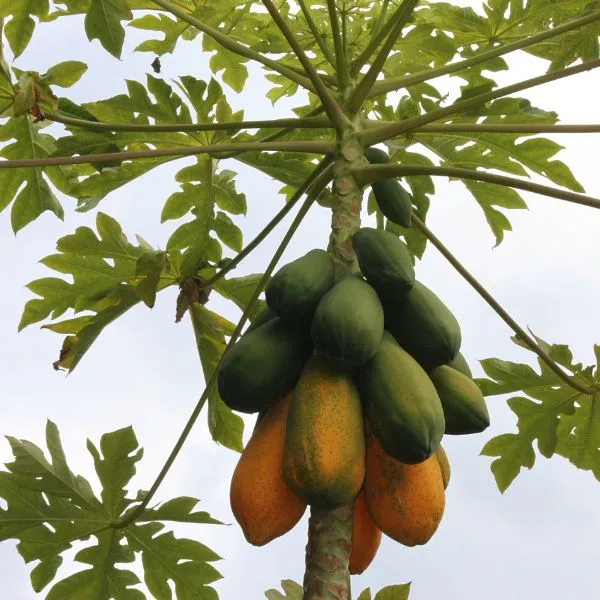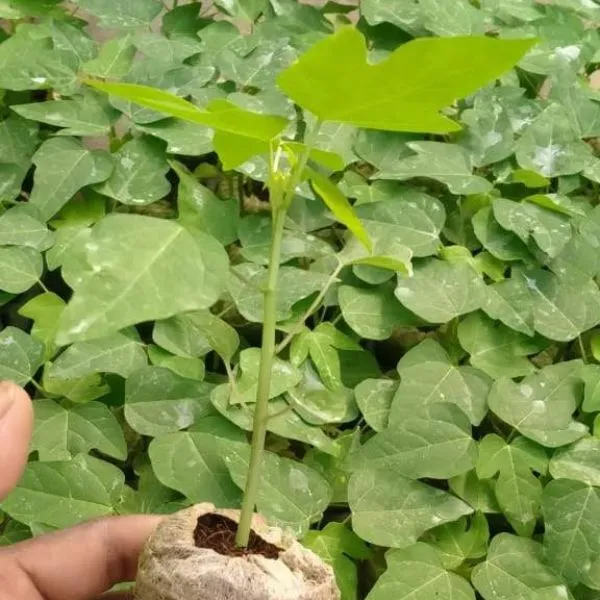Papaya Plant Sapling (1pc)
Original price was: ₹99.0.₹79.0Current price is: ₹79.0.
The Papaya plant is from the family Caricaceae having a greenish-yellow skin with sweetness inside! The fruit is rich in vitamin A, vitamin C, and vitamin E proving it to be one of the healthy breakfasts. This plant sapling will come in a 1-inch net pot. Please do not remove the plant from the net pot; plant it directly in a larger pot. Do not overwater the plant. Also, check out our workshops for more details.
SAPLING DESCRIPTION
- Number of saplings in a net pot – 1
- Sapling Height – 2 inches
- Watering – when the soil dries then only water
- Sunlight – bright sunlight
PLANT DESCRIPTION
- Difficulty Level – moderate
- Full Plant Height – 6 – 20 feet
- Type – outdoor
- Feed – Vermicompost for nutrients every week, Seaweed once a month for greener leaves, and Epsom salt for better blooming once a month
- Watering – once every week
- Sunlight – bright sunlight
- Suitable Temperature – 70°F – 90°F
HOW TO PLANT A SAPLING
- Take a sapling along with the net pot and choose the appropriate size of container for your plant.
- Seal the holes of the pot at the bottom.
- Pour potting soil more than half of the size of the pot.
- Then make a hole with your finger in the center of the potting soil and place your sapling along with the net pot.
- Cover it with soil again and water thoroughly.
ALTERNATE NAMES
Botanical name: Carica papaya
papaya plant sapling in hindi: papeete ka paudha (पपीते का पौधा)
papaya plant sapling in kannada: pappayi gidada sasi (ಪಪ್ಪಾಯಿ ಗಿಡದ ಸಸಿ)
papaya plant sapling in tamil: pappali ceti kanru (பப்பாளி செடி கன்று)
papaya plant sapling in telugu: boppayi mokka naru (బొప్పాయి మొక్క నారు)
papaya plant sapling in marathi: papa’ice ropate (पपईचे रोपटे)
papaya plant sapling in malayalam: pappaaya chediyude thai (പപ്പായ ചെടിയുടെ തൈ)
Other names: Papaw, pawpaw.







Reviews
There are no reviews yet.